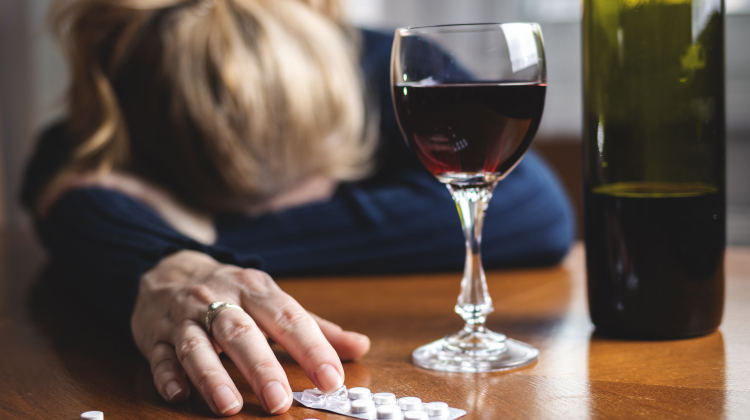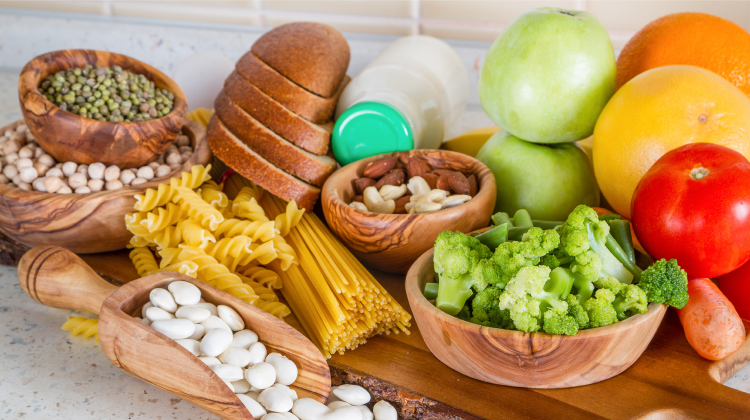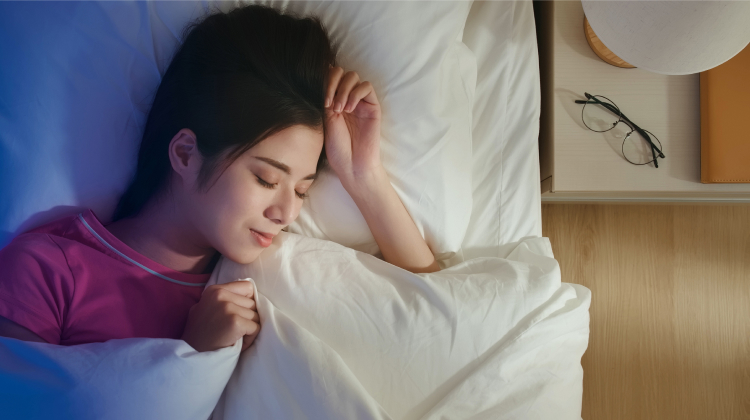Melancholic Depression: Symptoms, Causes And Treatment 2024

When someone has trouble getting out of f bed in the morning, showering or lacks interest in anything, they may suffer from melancholic depression. This is a severe and clinical form of depression that can make it feel impossible to carry on even the simplest of daily tasks.
Fortunately, the severity of the symptoms doesn’t usually last as long as with other forms of depression and often improves within a few weeks. However, they can frequently reoccur, even without a traumatic event to trigger them. That’s why it’s thought to have more of a biological root than a social one.
Severe depression needs to be addressed professionally as soon as possible to avoid worsening symptoms or suicide. Call 988 or text HOME to 741741 if you feel immediate danger.
Read on to find out how to notice the signs and help someone with depression.
What Is Melancholic Depression?
The distinct loss of enjoyment and interest in activities makes melancholic depression stand out from other forms. While this can be common throughout all types of depression, the severity[1] is often worse and all-encompassing. It’s more often a total loss of the capacity to experience pleasure, rather than a decrease in capacity.
This also explains one of the other defining features – the inability to feel better when something good happens. A lack of reactivity is common, along with psychomotor disturbances, such as moving or thinking much slower or quicker than usual. This is the opposite of atypical depression, where high reactivity[2] occurs, and moods brighten upon good news.
In the DSM-5, the standard diagnostic manual for mental health disorders, you will find those with melancholic depression to be classified as having a major depressive disorder (MDD)[3] with melancholic features.
Melancholic depression affects around 25-30%[1] of those diagnosed with major depressive disorder. They also have higher rates of suicide[4] than non-melancholic depression due to the severity of symptoms.
It’s often found in severely ill patients with major depression or bipolar disorder. It’s also significantly more likely to occur in men rather than women. Gender and age are the only commonalities, giving further evidence to the theory that it’s primarily biological.
Melancholic Depression Symptoms
Before being diagnosed as having melancholic features, you first have to fall under the diagnosis of major depressive disorder. These symptoms include
- Persistent sadness, anxiety, or feeling of emptiness
- Difficulty sleeping or concentrating
- Loss of interest and pleasure in activities
- Fatigue, low energy
- Irritability, restlessness
- Unexplainable appetite or weight changes
- Unexplainable aches, pains, or digestive issues
- Suicidal thoughts or attempt
To be diagnosed as having major depressive disorder with melancholic features[5], you need to have at least three of the following symptoms for at least two weeks[4]:
- Depressive mood and responses disproportionate to stressors: Overwhelming sadness, despair, despondency, or emptiness, mood and energy levels are often worse in the morning
- Slowed or agitated activity (psychomotor disturbances): Slowed or restless movement, thought, or speech
- Reduced concentration and memory (cognitive impairment): Difficulty making decisions, working, reading, etc.
- Bodily changes: Sleep disturbances, loss of appetite, weight, or libido
- Intense hopelessness or guilt
There is some consistency in those with melancholic features waking earlier in the morning than usual, about two hours or so. Everything seems to feel particularly worse during these early hours. Overall, melancholic symptoms are often briefer but more severe than a major depressive episode, with frequent reoccurrences.
If you’ve noticed these symptoms in yourself or someone else, contact the National Suicide Prevention Lifeline at 988 for immediate and 24/7 support or text HOME to 741741.
Causes
Since melancholic depression has several distinct characteristics[4], such as the inability to feel better when good things happen, it’s thought to be more associated with biological[5] rather than social or psychological factors. Some of these factors are
Genetic
- Having a certain gene associated with depression (related to serotonin transportation)
- A family history of mood disorders
Biochemical
- Impaired cell function in the brain (mitochondrial malfunction)
- Altered brain chemistry, such as the functioning of the neurotransmitter serotonin[6]
Anatomic
- Less hippocampal volume (part of the brain essential for learning, memory)
- Associated with the overall limbic system[7] which controls mood, pain, pleasure, and appetite.
Endocrine
- Hypercortisolism (Cushing’s syndrome) – abnormally high amounts of cortisol, stress, and “flight-or-flight” hormone.
- Improper functioning of the hypothalamus, pituitary, or adrenal glands (HPA axis) that regulate stress and appetite.
Circadian Rhythm
- Abnormal sleep homeostasis and EEG rhythms
- Low slow-wave activity[8] in depressed and melancholic men
Overall, the onset of melancholic depression isn’t particularly associated with traumatic life events like other types of depression. Instead, biological factors seem to be the major commonalities between those suffering.
Treatments For Melancholic Depression
Melancholia may be a lifetime diagnosis with regularly recurring episodes. That’s why professional treatment and immediate action once recognizing the symptoms are essential for recovery.
Scheduling a doctor’s appointment for a thorough check-up with blood work is the first step, as deficiencies and hormonal disorders are common causes of depression. From there, you may be referred to a psychiatrist and begin treatment.
These are some of the most common treatments for melancholic depression:
Medication
Due to the biological nature of melancholia, treatment plants often involve medication. People with melancholic depression have been shown to respond well to broad-action tricyclic antidepressants (TCS)[5]. These differ from the more commonly prescribed narrow-action antidepressants, such as serotonin uptake inhibitors (SSRIs).
Monoamine oxidase inhibitors (MAOIs) also show good response rates for depressed people with melancholia. Unlike non-melancholic depression, those suffering rarely respond well to placebos.
Psychotherapy
Most forms of depression respond well to talk therapy. Those with melancholic depression, however, often require medication along with psychotherapy. Cognitive behavioral therapy (CBT)[9] and interpersonal therapy[10] are examples of common talk therapy treatments known to alleviate severe symptoms and help treat depression effectively.
For those unwilling or unable to pay for one-to-one sessions, free support groups[11] could also offer comfort and help to those suffering.
Electroconvulsive Therapy (ECT)
While not as commonly used as in the past, ECT is still believed to be effective[1] for melancholic depression. It is still considered an option for those not responding well to medication. While viewed as an extreme method by many, it has been shown to dramatically eliminate severe depressive symptoms in those suffering from depression for extended periods of time.
Unfortunately, there is a stigma associated with this type of therapy, and although it’s considered a safe and effective treatment, many do not seek it.
Ways To Deal With Melancholic Depression
Overall, depressed individuals with melancholic features have a harder time recovering, especially without adequate professional treatment. Besides psychotherapy and medication, there are many ways to help manage and prevent symptoms of melancholic depression on your own.
Avoid Alcohol And Non-Prescription Drugs

Alcohol is directly linked to depression[12], anxiety, suicide, and self-harm. Drinking can induce depressive states and significantly increase the risk of suicide. It’s also important not to drink when taking antidepressants, as there is a risk of interaction. Alcohol intake can also increase some of the negative side effects[13] of melancholic depression and the risk of relapse.
Spend Time In Nature

Going to nature regularly is one of the most underutilized and effective[14] antidepressants. It’s been shown to lower cortisol, improve cognition, and reduce depressive symptoms overall. As little as 120 minutes a week[15] can offer dramatic results. That could be a few hours spent hiking or having a relaxing picnic on the weekend or 20 minutes a day in a nearby, quiet nature spot.
Add Nutrient-Dense Foods

How you eat significantly affects your gut microbiome[16] and in turn, the severity or likelihood of developing depression and anxiety. This is because the gut and brain are interconnected – both can support or hinder each other.
You don’t have to worry about cutting out junk food forever or changing the way you eat overnight. Focusing instead on one small habit change at a time gives you the best chance of long-term success.
You could start by adding one more vegetable to every meal. After it becomes a habit, you can move on to another goal, like snacking on seeds, nuts, or fruit daily. Also, check your blood work to check for deficiencies that correlate with depression, like vitamin D, B vitamins, and iron (for women).
A multivitamin, probiotic[17], and omega-3-rich[18] foods (like salmon, sardines, chia, hemp, or flaxseeds), can go a long way toward improving your overall mood.
Create A Sleep Routine

Your quality of sleep[19] significantly impacts depression levels. Improving sleep hygiene and adopting a consistent sleep routine decreases depression, anxiety, and rumination.
Start with a few simple changes, such as:
- Getting off screens one to two hours before bed and dimming the lights or using candles.
- Practicing a relaxing self-care ritual like journaling or listening to calming nature music.
- Taking a warm and soothing bath before bed.
- Avoiding large meals or caffeine within a few hours of going to bed.
- Investing in a comfortable pillow, mattress, eye mask, and earplugs if needed.
Within a few days or weeks, you should begin to notice a change in how rested and emotionally balanced you feel.
Exercise Regularly

Moving your body regularly is an effective antidepressant[20]. Research shows 150 minutes per week[21], or 30 minutes of exercise a day, reduce symptoms of depression and improves overall mental health.
To stick with it long-term, try to find an activity you enjoy, like walking in parks or nature, dancing, or yoga. Focus on doing the best you can and try doing something active every day, as any time of movement will help.
Seek Social Support

Loneliness[22] and social isolation are some of the biggest risk factors for depression. Spending time with people[23] who lift you up is crucial for mental health. We are all social beings and depend on each other for our survival and well-being.
If you’re feeling lonely, contact a support group[11] online or near you. You can also volunteer, attend meet-ups, or join classes like photography, art, writing, or dancing to meet other people and feel a part of a community.
Practice Mindfulness And Meditation

These buzzwords are trending for a good reason. They’ve been proven[24] to reduce symptoms of anxiety and depression. If it sounds boring or pointless, you can start with just 2-minutes a day, using guided meditation online. From there, you might start noticing you’re a bit calmer or better able to accept whatever difficult situation or emotions you’re feeling.
It’s not an overnight treatment method, but with time and patience, it helps.
In the end, any new habit takes some trial and error to find the routine that works for you, but long term it will make a difference.
The Takeaway
Melancholic depression is a severe form of clinical depression. It’s characterized by a lack of reactivity to positive events and a persistent and overwhelming depressed mood that lasts for at least two weeks.
Treating melancholic depression usually requires antidepressant medications along with psychotherapy. In some cases, electroconvulsive therapy (ECT) might even be useful. Outside of therapy, there are also many self-care activities, such as ensuring healthy sleep, eating, exercise, and relaxation habits.
Of course, starting a new habit might easily feel overwhelming when you have depression with melancholic features. That’s why reaching out to mental health professionals, whether for online or in-person support, is crucial to ensure recovery from every mental illness.
+ 24 sources
Health Canal avoids using tertiary references. We have strict sourcing guidelines and rely on peer-reviewed studies, academic researches from medical associations and institutions. To ensure the accuracy of articles in Health Canal, you can read more about the editorial process here
- Gili, M., Roca, M., Armengol, S., Asensio, D., Garcia-Campayo, J. and Parker, G. (2012). Clinical Patterns and Treatment Outcome in Patients with Melancholic, Atypical and Non-Melancholic Depressions. PLoS ONE, [online] 7(10), p.e48200. doi:10.1371/journal.pone.0048200.
- Łojko, D. and Rybakowski, J. (2017). Atypical depression: current perspectives. Neuropsychiatric Disease and Treatment, [online] Volume 13, pp.2447–2456. doi:10.2147/ndt.s147317.
- National Institute of Mental Health (NIMH). (2021). Depression. [online] Available at: https://www.nimh.nih.gov/health/publications/depression
- Quagliato, L.A., Freire, R.C. and Nardi, A.E. (2021). Delusional Depression and Melancholia. Psychotic Disorders, [online] pp.79–92. doi:10.1016/b978-0-323-68309-8.00006-0.
- American Journal of Psychiatry. (2020). Issues for DSM-5: Whither Melancholia? The Case for Its Classification as a Distinct Mood Disorder. [online] Available at: https://ajp.psychiatryonline.org/doi/full/10.1176/appi.ajp.2010.09101525
- Arango, V., Underwood, M.D. and Mann, J.John. (2002). Chapter 35 Serotonin brain circuits involved in major depression and suicide. Progress in Brain Research, [online] pp.443–453. doi:10.1016/s0079-6123(02)36037-0.
- Dhikav, V. and Anand, K. (2012). Hippocampus in health and disease: An overview. Annals of Indian Academy of Neurology, [online] 15(4), p.239. doi:10.4103/0972-2327.104323.
- Armitage, R. (2007). Sleep and circadian rhythms in mood disorders. Acta Psychiatrica Scandinavica, [online] 115(s433), pp.104–115. doi:10.1111/j.1600-0447.2007.00968.x.
- Gautam, M., Tripathi, A., Deshmukh, D. and Gaur, M. (2020). Cognitive Behavioral Therapy for Depression. Indian Journal of Psychiatry, [online] 62(8), p.223. doi:10.4103/psychiatry.indianjpsychiatry_772_19.
- de Mello, M.F., de Jesus Mari, J., Bacaltchuk, J., Verdeli, H. and Neugebauer, R. (2004). A systematic review of research findings on the efficacy of interpersonal therapy for depressive disorders. European Archives of Psychiatry and Clinical Neuroscience, [online] 255(2), pp.75–82. doi:10.1007/s00406-004-0542-x.
- Mental Health America. (2022). Find Support Groups. [online] Available at: https://www.mhanational.org/find-support-groups
- Boden, J.M. and Fergusson, D.M. (2011). Alcohol and depression. Addiction, [online] 106(5), pp.906–914. doi:10.1111/j.1360-0443.2010.03351.x.
- NHS Choices (2022). Cautions – Antidepressants. [online] Available at: https://www.nhs.uk/mental-health/talking-therapies-medicine-treatments/medicines-and-psychiatry/antidepressants/considerations/
- Berman, M.G., Kross, E., Krpan, K.M., Askren, M.K., Burson, A., Deldin, P.J., Kaplan, S., Sherdell, L., Gotlib, I.H. and Jonides, J. (2012). Interacting with nature improves cognition and affect for individuals with depression. Journal of Affective Disorders, [online] 140(3), pp.300–305. doi:10.1016/j.jad.2012.03.012.
- White, M.P., Alcock, I., Grellier, J., Wheeler, B.W., Hartig, T., Warber, S.L., Bone, A., Depledge, M.H. and Fleming, L.E. (2019). Spending at least 120 minutes a week in nature is associated with good health and wellbeing. Scientific Reports, [online] 9(1). doi:10.1038/s41598-019-44097-3.
- Foster, J.A. and McVey Neufeld, K.-A. (2013). Gut–brain axis: how the microbiome influences anxiety and depression. Trends in Neurosciences, [online] 36(5), pp.305–312. doi:10.1016/j.tins.2013.01.005.
- Huang, R., Wang, K. and Hu, J. (2016). Effect of Probiotics on Depression: A Systematic Review and Meta-Analysis of Randomized Controlled Trials. Nutrients, [online] 8(8), p.483. doi:10.3390/nu8080483.
- Logan, A.C. (2004). Lipids in Health and Disease, [online] 3(1), p.25. doi:10.1186/1476-511x-3-25.
- Scott, A.J., Webb, T.L., Martyn-St James, M., Rowse, G. and Weich, S. (2021). Improving sleep quality leads to better mental health: A meta-analysis of randomised controlled trials. Sleep Medicine Reviews, [online] 60, p.101556. doi:10.1016/j.smrv.2021.101556.
- Apa.org. (2022). APA PsycNet. [online] Available at: https://psycnet.apa.org/record/2008-03723-017
- CDC (2022). How much physical activity do adults need? [online] Centers for Disease Control and Prevention. Available at: https://www.cdc.gov/physicalactivity/basics/adults/index.htm
- Cacioppo, J.T. and Cacioppo, S. (2018). The growing problem of loneliness. The Lancet, [online] 391(10119), p.426. doi:10.1016/s0140-6736(18)30142-9.
- House, J.S., Landis, K.R. and Umberson, D. (1988). Social Relationships and Health. Science, [online] 241(4865), pp.540–545. doi:10.1126/science.3399889.
- MARCHAND, W.R. (2012). Mindfulness-Based Stress Reduction, Mindfulness-Based Cognitive Therapy, and Zen Meditation for Depression, Anxiety, Pain, and Psychological Distress. Journal of Psychiatric Practice, [online] 18(4), pp.233–252. doi:10.1097/01.pra.0000416014.53215.86.



